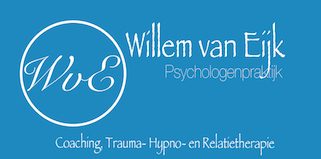Methodology and Inspiration
In the course of time my view on the work has been influenced by a range of inspirators and life experiences. Trained as a first-line psychologist I considered “care” and “making better” of my clients as my main tasks. However, I have come to see that many of the problems with which people enter my office have to do with the same underlying dynamics. The extent to which we are prepared to take responsibility for our situation and life determines to a large extent whether we develop psychological issues. In other words: do you come to be ‘fixed’ or do you come to grow up and learn to deal with your life in an adult way?
You could say that I have seen my role as a therapist shift from “care provider” to what I call “facilitator” (enabling situations that contribute to the recovery of yourself, or: the integration of all the disowned parts, including those parts of yourself that you do not want; we also call this ‘healing’, or ‘becoming whole’). I strive to teach the people I work with to become (really) mature, meaning: to stand on their own feet, grounded in reality.
Another related aspect that has become clear to me is that behind and under many diagnoses there is some form of trauma . And, that behind virtually every trauma there is a previous trauma, and eventually the loss of connection with our authentic self.
This is not always trauma with a big T but takes place in what is still considered ‘normal’ in our western society. For example: in childhood, mother is stressed out and she can not be completely there for us, however much she loves us. We draw the conclusion – all unconsciously – to be too much , or not good enough . This feels awful and we are going to compensate this – again largely unconsciously.
We want to feel good and we want mom to love us! So we accommodate. In this process of customization, we usually go so far that we lose sight of the connection with who we really are and with our authentic needs. We identify ourselves with the adjusted or (trauma) compensatory part in us and let go of our Self. The ego is born. We do not want to feel the original pain and we do everything we can to avoid this. Result: Depressions, anxiety disorders, burnout, addiction problems, autoimmune diseases, etc. No more connection with your authentic needs and the question: Who are you? brings up a lump in your throat.
